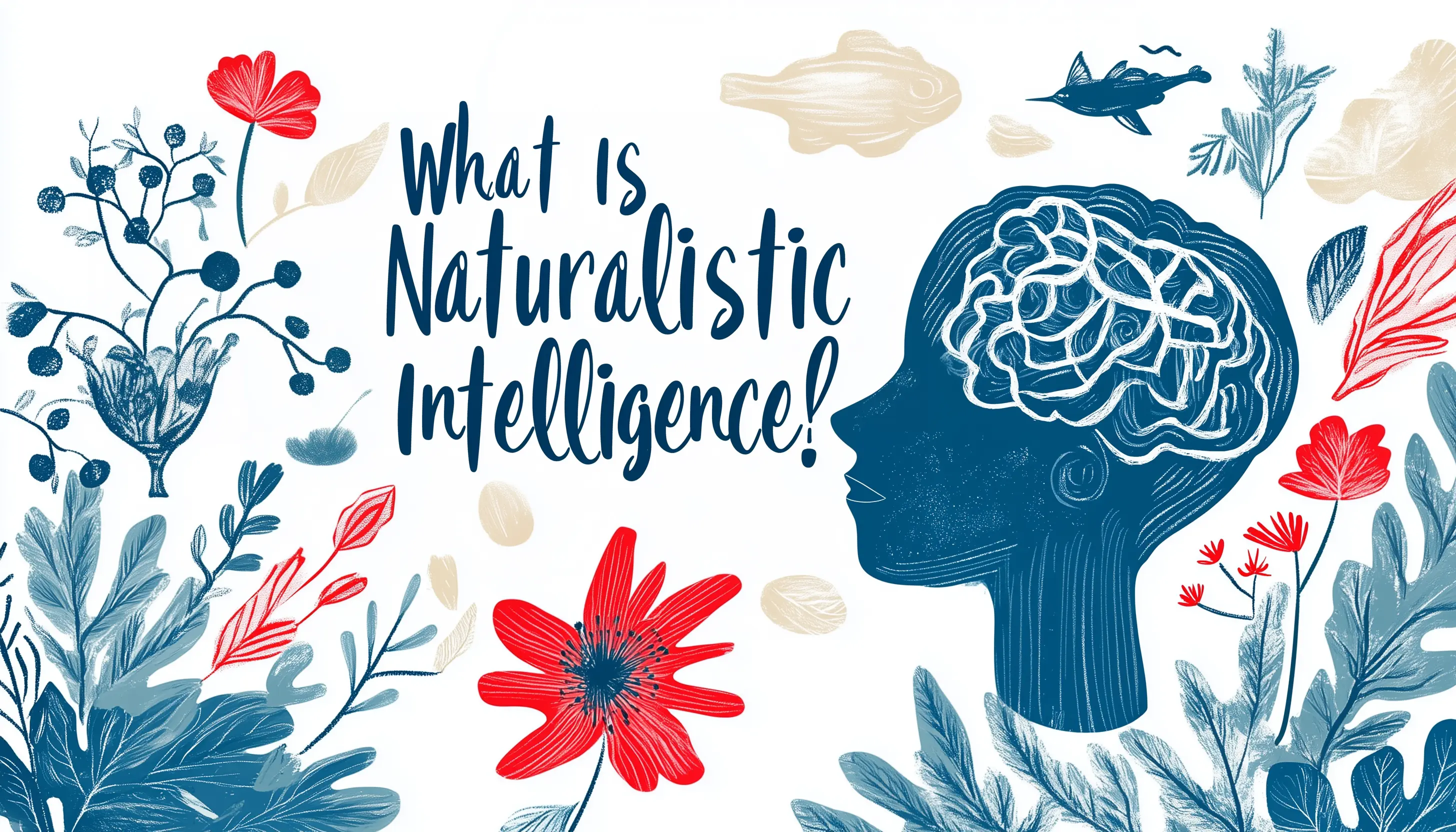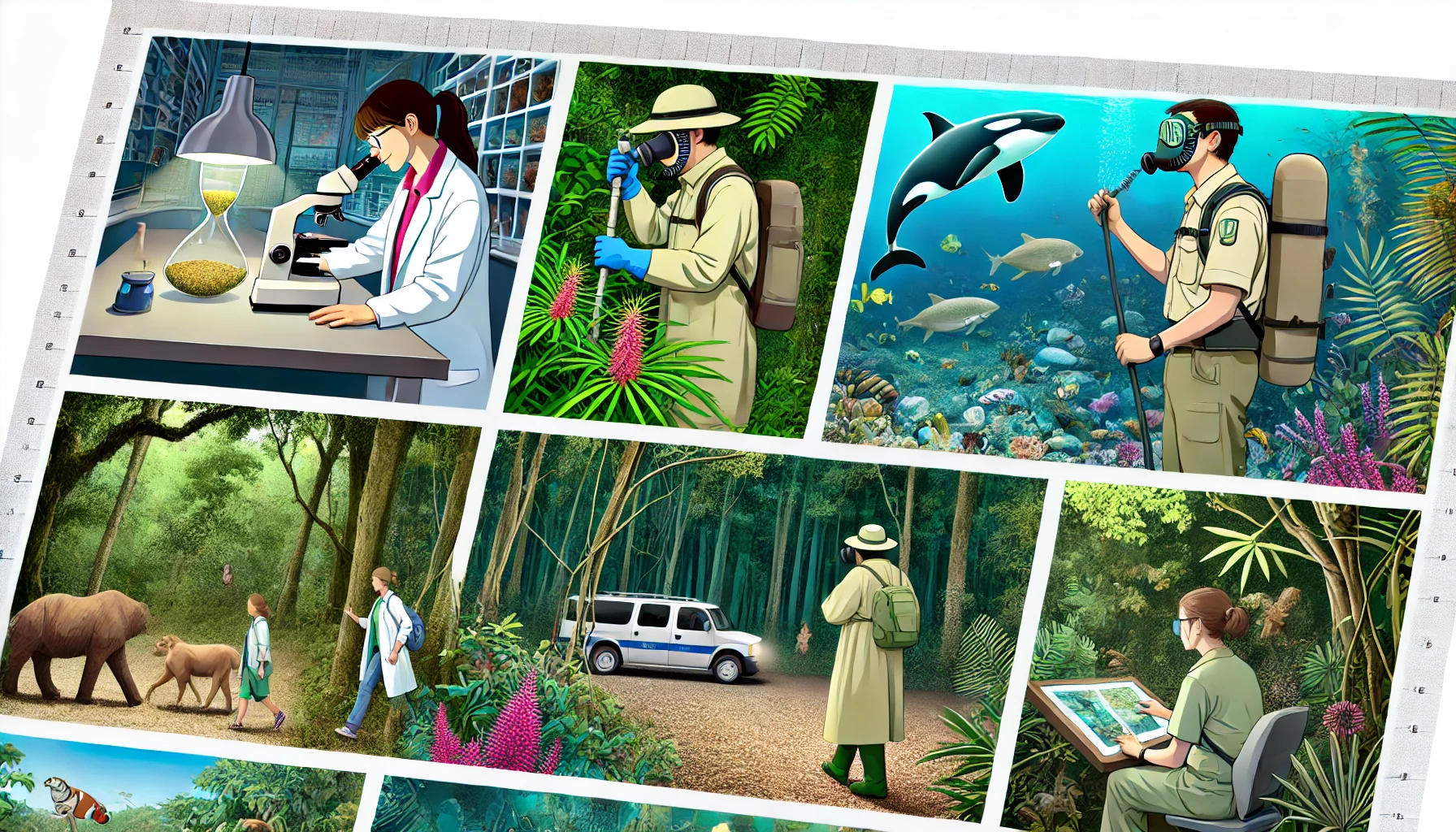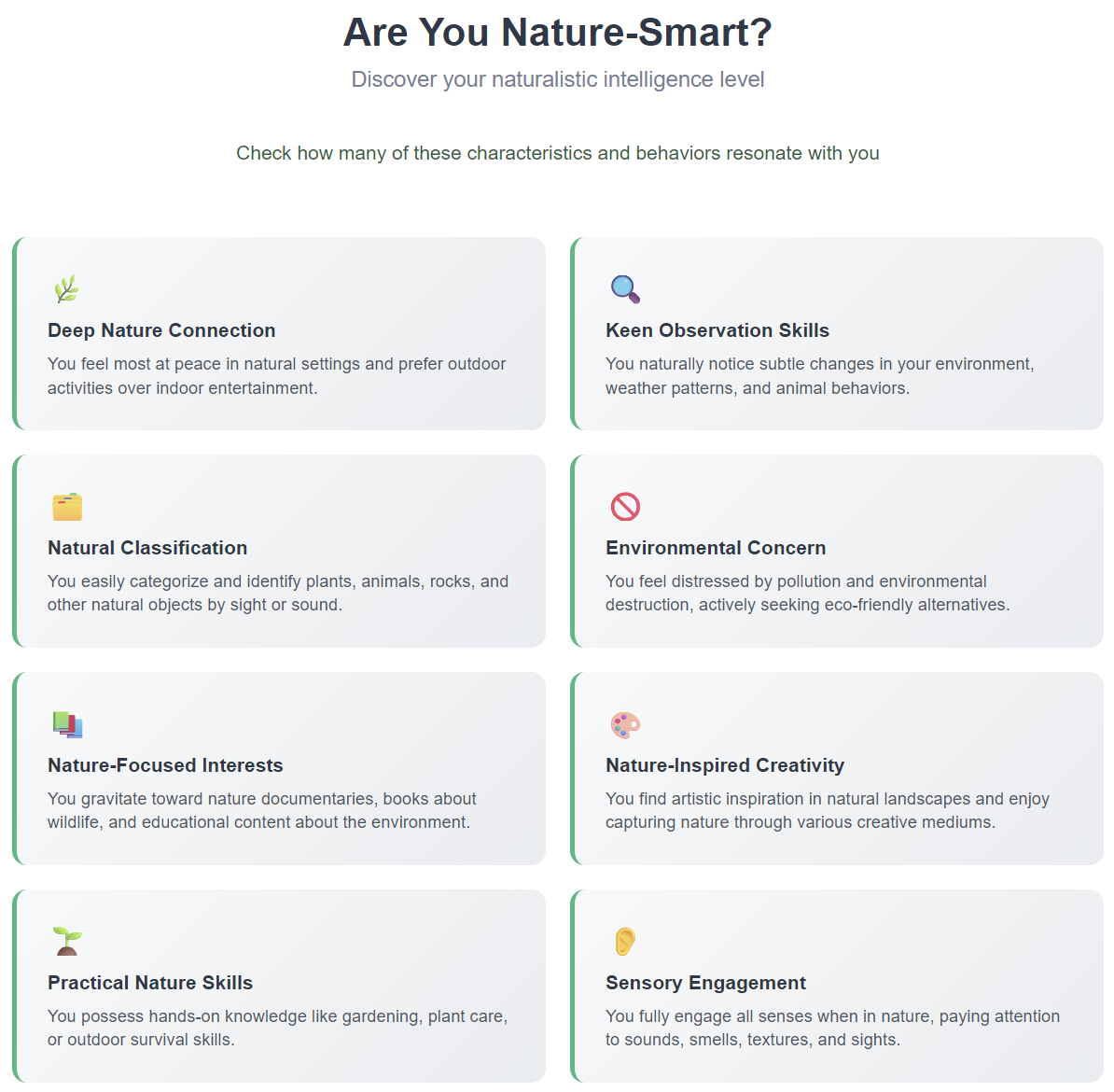What is Gardner's Naturalistic Intelligence? Definition, Characteristics, and Famous People with Naturalistic Intelligence
Naturalistic intelligence is one of the multiple intelligences proposed by Howard Gardner. It's all about appreciating and having a deep connection with nature. People with the naturalist intelligence type have a strong understanding of natural elements like animals, plants, and the environment and are passionate about learning, exploring, and nurturing these elements.


Back
9 mins read
Do you find yourself drawn to the beauty of the natural world? Are you fascinated by the intricate patterns in plants, the behavior of animals, or the changing seasons? Do you often feel a natural inclination to classify nature and understand the different elements of the environment around you?
If so, you might possess a high degree of naturalistic intelligence.
From an early age, human beings are naturally curious and eager to explore, categorize, and understand the world around them. This instinct to observe and classify is deeply rooted in naturalistic intelligence. Like all forms of intelligence, naturalistic intelligence is something we are all born with, though it can be cultivated and enhanced over time.
Naturalistic intelligence is one of the nine intelligences identified by psychologist Howard Gardner in his theory of multiple intelligences. While traditional views of intelligence often focus on logical reasoning and problem-solving abilities — skills commonly measured by IQ tests — Gardner's theory broadens the concept of intelligence to include diverse ways of understanding and interacting with the world. Among these, naturalistic intelligence stands out for its role in helping individuals connect with nature and recognize patterns in the environment.
So, What Is Naturalist Intelligence? Understanding Naturalistic Intelligence
Naturalistic intelligence, also known as naturalist intelligence, is the capacity to recognize, categorize, and draw upon certain features of the environment. This form of intelligence involves the ability to observe, identify, and understand various aspects of the natural world, including living organisms and ecological patterns.
People with high naturalistic intelligence have an innate sensitivity to nature. They often excel in fields such as environmental science, agriculture, and wildlife conservation. Their connection to nature is not merely about being outdoors but involves a deep appreciation and understanding of the natural world and its intricate systems.
Characteristics of Naturalistic Intelligence

Naturalistic intelligence is based on certain characteristics and abilities related to appreciating and understanding the natural world. It also requires intensified respect for animals, plants, and the natural world. People with such intelligence are often known as "naturally intelligent."
The following characteristics describe people with naturalistic intelligence:
Aversion to Pollution
People with naturalistic intelligence care deeply about the environment and despise anything that destroys it. They hate anyone who pollutes the environment, cuts trees, or even plucks a flower. They often consider the ethical implications of their actions on the environment and make choices that reflect their commitment to preserving nature, such as coming up with ideas to stop pollution.
Deep Connection to the Natural Environment
They feel a strong affinity toward the natural world and spend significant time outdoors, engaging in outdoor activities, like hiking, bird watching, gardening, and camping. They are also attracted to books about nature and enjoy reading about famous naturalists. Their favorite TV shows and films are those that feature clips from nature, for example National Geographic and Discovery Channel.
Ability to Classify and Identify Natural Objects
They excel at categorizing natural elements and recognizing various species of plants, animals, and minerals, often identifying them by sight, sound, or other sensory cues. They are also good at noticing patterns and classifying anything related to nature.
Strong Observation Skills
People with naturalistic intelligence notice subtle changes and details as they observe nature, such as shifts in weather, animal behavior, and plant growth patterns. They quickly notice when and what their pets need.
Practical Knowledge and Skills
They often possess practical skills related to nature, such as survival skills, knowledge of medicinal plants, organic farming, or expertise in outdoor activities.
Multiple Intelligences and Naturalistic Intelligence
Traditional measures of human intelligence, such as IQ tests, primarily assess cognitive abilities like logical reasoning, verbal skills, and mathematical prowess. However, these tests often fail to capture the full spectrum of human capabilities, such as the ability to recognize patterns in nature or the capacity for ecological sensitivity.
Howard Gardner's Theory of Multiple Intelligences challenges the notion that intelligence is a single, general ability. In his groundbreaking work, Gardner proposed that humans possess various types of intelligence that function either independently or collaboratively. Among these, naturalistic intelligence is specifically concerned with an individual's ability to interact with, understand, and engage with the natural environment.
Gardner initially identified seven types of intelligence — Logical-Mathematical Intelligence, Verbal-Linguistic Intelligence, Spatial Intelligence, Bodily-Kinesthetic Intelligence, Musical Intelligence, Interpersonal Intelligence, and Intrapersonal Intelligence — later expanding the list to include naturalistic and existential intelligence, bringing the total to nine.
Each type of intelligence reflects different ways of processing information and solving problems, with naturalistic intelligence highlighting the human ability to connect with and make sense of the natural world.
Curiosity and Passion for the Natural World
They have an insatiable curiosity about the natural world and stay updated on scientific discoveries and environmental information-related news. Their passion drives them to learn and explore continuously.
Sensory Engagement
When experiencing nature, they fully engage their senses, paying attention to the sounds, smells, textures, and sights of the natural world.
Creative Expression Inspired by Nature
They may express their connection to nature through creative outlets like art, photography, writing, or music, often drawing inspiration from natural landscapes and wildlife.
Advantages of Developed Naturalistic Intelligence
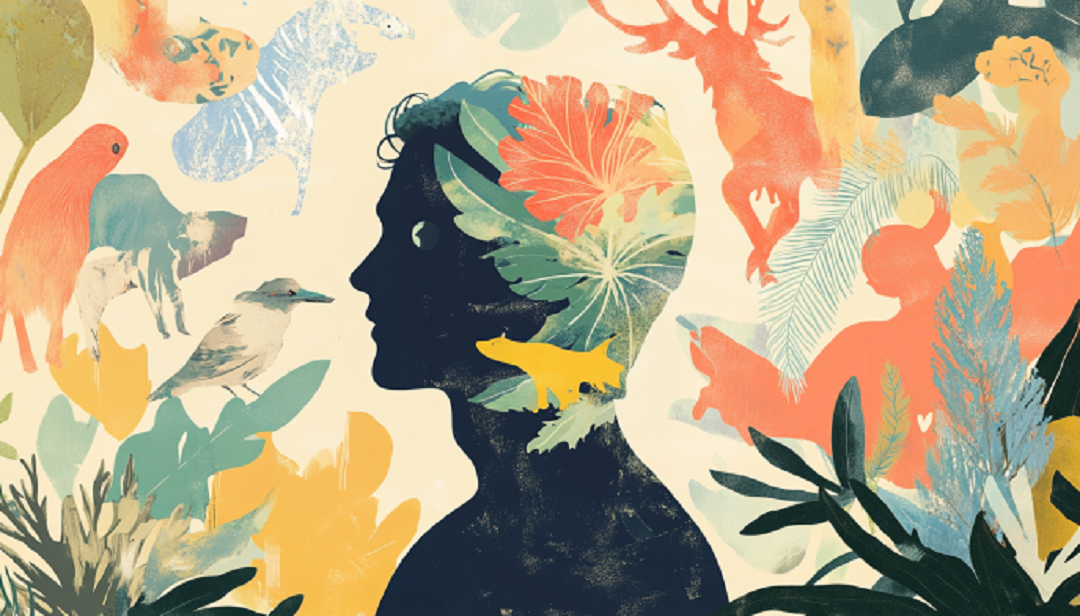
Naturalistic intelligence is more than just a love for nature — it reflects the ability to observe, understand, and categorize elements of the natural world. People strong in this intelligence often pursue careers in conservation, agriculture, biology, and environmental science, where they contribute to solving global issues like climate change, habitat destruction, and resource depletion.
Their awareness of ecological systems helps them promote sustainability and inspire others toward more eco-friendly practices. Many use education, storytelling, or science to raise awareness about environmental stewardship and biodiversity preservation.
However, the benefits of naturalistic intelligence extend beyond professional use. Engaging with nature enhances observation, fine motor skills, and cognitive engagement through activities like collecting, sorting, or identifying species. It also nurtures curiosity and empathy—not only toward animals and ecosystems but toward people as well.
Ultimately, naturalistic intelligence supports both personal development and global well-being by deepening our understanding of the world and motivating us to protect it for future generations.
Activities that Develop Naturalistic Intelligence

As mentioned earlier, naturalist intelligence can be built over time, like other types of intelligence and cognitive abilities. Whether one is born with it or tries to nurture this ability, numerous activities can help one form a deeper connection to natural environments.
Some of the strategies you can try incorporating into your everyday life include:
Go for Nature Walks
Exploring outdoor settings will increase your discovery, creativity, and love for the natural environment. You can go hiking on a mountain trail or for walks in the parks, along the river, or in the forest. Pay attention to the details and observe the plants, animals, natural events, and landscapes around you.
Nature walks not only make you pay attention to your surroundings, but they are also an excellent stress reliever and benefit your physical health as well.
Join Nature Groups and Organizations
Participate in local nature clubs, conservation groups, or environmental organizations. These groups often organize field trips, workshops, and volunteer opportunities that can enhance your knowledge and skills.
Watch Nature-Related Documentaries
Nature documentaries are a great source of inspiration for people who want to learn more about different plants and animal species. Watching these documentaries will introduce you to a fascinating world of nature that you may never have known about. So, head to National Geographic, PBS, Animal Planet, NAT GEO Wild, and Discovery Channel, and immerse yourself in nature.
Keep Nature Journals
A nature journal will help you keep data or draw ideas about nature. Many naturalists, artists, and scientists use nature journals to record information about their observations of an object or place. Creating a nature journal is not complicated; you only need pencils, paper, and something to color.
As you go for your nature walk, note down what you see while making sure you notice the sizes, shapes, colors, and textures. Make sure to note the season and weather, and if you come across any natural objects like leaves, feathers, and flower petals, be sure to add them to your nature journal, too.
Cultivate a Garden
Start a garden, whether in your backyard, a community plot, or even on your balcony. Growing plants helps you understand their lifecycle, soil health, and the role of insects and pollinators.
Engage in Creative Expression
Use art, photography, writing, or other creative outlets to express your observations and experiences with nature. This will help deepen your connection to and appreciation for the natural world.
Famous Figures with Naturalistic Intelligence
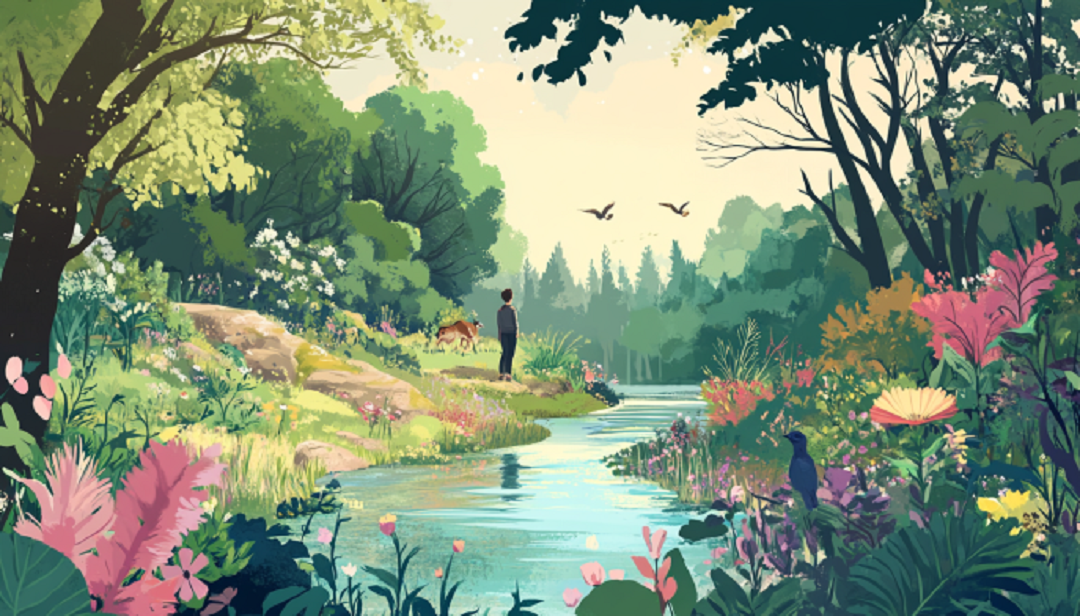
Naturalistic intelligence is often seen in people who are deeply connected to nature — scientists, conservationists, and explorers. These individuals have made significant contributions to understanding the natural world.
- Charles Darwin – Developed the theory of evolution through natural selection.
- Gerald Durrell – Naturalist and author who founded the Jersey Zoo and wrote books like My Family and Other Animals.
- John Muir – Conservationist and founder of the Sierra Club.
- David Suzuki – Environmental activist and science broadcaster.
- Rachel Carson – Marine biologist and author of Silent Spring.
- Jacques Cousteau – Oceanographer and filmmaker.
- John James Audubon – Ornithologist and painter known for The Birds of America.
- Jane Goodall – Primatologist known for her research on chimpanzees.
- Neil deGrasse Tyson – Astrophysicist and science communicator.
- Steve Irwin & Robert Irwin – Wildlife conservationists and TV personalities.
Examples of Naturalist Intelligence Careers and Hobbies
People with naturalistic intelligence are often drawn to careers and hobbies that involve working closely with nature, understanding and preserving the environment, and engaging with the natural world. These individuals thrive in roles that allow them to explore, classify, and interact with the diverse elements of nature, whether through scientific research, hands-on conservation efforts, or creative expression.
Here are examples of naturalistic intelligence in action:
- Botanists: Scientists who study plant life, including their structure, growth, diseases, and ecological relationships. They may work in agriculture, conservation, and environmental science fields.
- Zoologists and Wildlife Biologists: Researchers who study animals and their behaviors, genetics, and habitats. They often work on conservation projects to protect endangered species and their ecosystems.
- Environmental Scientists: Professionals who analyze environmental issues and develop solutions to protect the environment. They may work in pollution control, natural resource management, and sustainability projects.
- Farmers and Agriculturalists: Individuals who grow crops and raise livestock, often using sustainable and organic practices to enhance soil health and biodiversity on their farms.
- Horticulturists: Experts in garden cultivation and management, focusing on growing fruits, vegetables, flowers, and ornamental plants. They often work in botanical gardens, nurseries, and landscape design.
- Ecologists: Scientists who study the relationships between organisms and their environments. They may work on projects related to ecosystem health, biodiversity conservation, and climate change.
- Conservationists and Park Rangers: Individuals who work to protect natural resources and wildlife in national parks, nature reserves, and other protected areas. They engage in habitat restoration, wildlife monitoring, and environmental education.
- Bird Watchers and Ornithologists: People who observe and study birds, identifying different species and understanding their behaviors, migration patterns, and habitats.
- Gardeners and Landscapers: Individuals who design, plant, and maintain gardens and landscapes, often focusing on creating spaces that support local wildlife and promote ecological balance.
- Nature Photographers and Artists: Creatives who capture the beauty of the natural world through photography, painting, and other forms of art, often highlighting environmental themes and raising awareness about conservation.
- Outdoor Educators and Adventure Guides: Professionals who lead educational programs and activities in natural settings, teaching others about ecology, geology, and outdoor survival skills.
- Herbalists: Practitioners who use knowledge of plants and their medicinal properties to create natural remedies and treatments.
While naturalistic intelligence strongly aligns with certain career paths, most people possess a mix of intelligences that shape their professional interests. A great example is Carl Sagan—known for his logical and verbal intelligence, he also demonstrated naturalistic intelligence through his fascination with the cosmos, life’s origins, and ecological systems. His career illustrates how different intelligences can blend in meaningful ways.
The Holland Career Interest Test supports this holistic approach. It identifies six career personality types to help people find roles that match their full spectrum of strengths.
Among them, the Realistic and Investigative types are most aligned with naturalistic intelligence. Realistic types enjoy hands-on, outdoor work, while Investigative types excel at research and analysis in fields like ecology, geology, or biology.
By recognizing how multiple intelligences interact, the Holland Code offers a valuable framework for choosing careers that reflect both your abilities and your connection to nature.
Are You Nature Smart?

Naturalistic intelligence is about having a deep connection with and appreciation for nature. This type of intelligence dates back to early human history when survival depended on the ability to differentiate between dangerous and beneficial species, read the land for soil quality, and identify which resources were available for food.
People with naturalistic intelligence often find fulfilling careers in fields like ecology, geology, marine biology, horticulture, conservation, and wildlife management, where they can make a meaningful difference.
However, being nature-smart isn’t just for those who are naturally inclined. In today’s world, where climate change and environmental issues are pressing concerns, it's essential for everyone to be aware of the importance of conservation, sustainability, and responsible ecological stewardship.
The good news is that even if naturalistic intelligence isn’t your strongest suit, there are ways to cultivate a stronger awareness of your surroundings. Spend time outdoors, watch nature documentaries, get hands-on experience, and develop a closer relationship with the natural world around you.
Beyond Nature: Discover Your Connection with Other Intelligences
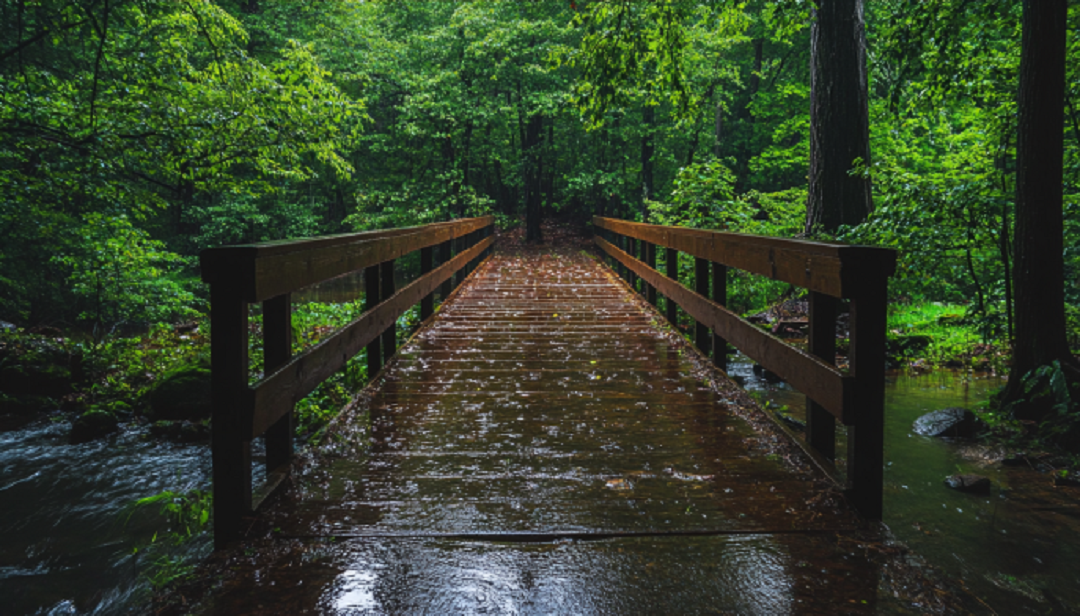
Naturalistic intelligence is just one of the many types of intelligence that people can develop and harness. Exploring and understanding these different forms of intelligence can open up new ways of thinking and interacting with the world.
As we discussed earlier, it is rare for a person to excel or lean toward only one type of intelligence. Most of us have a unique blend of different intelligences that shape our abilities and interests.
We encourage you to learn more about Gardner's other types of intelligence:


Return to Blog
